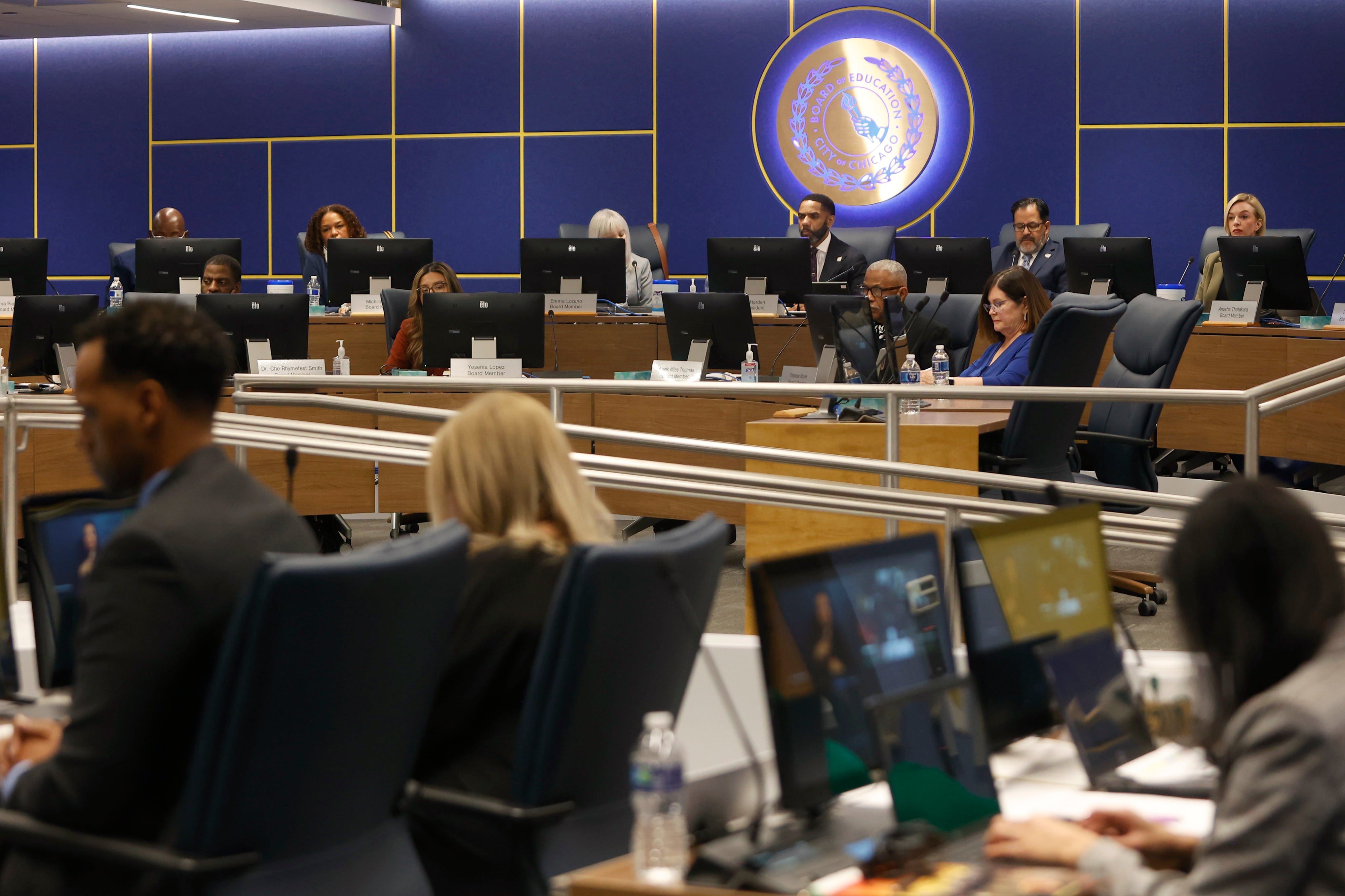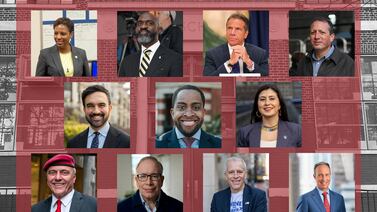Sign up for Chalkbeat Chicago’s free daily newsletter to keep up with the latest news on Chicago Public Schools.
The Chicago school board voted unanimously to form a new district committee tasked with improving the experience and academic outcomes of Black students.
The committee was a requirement of a bill Illinois lawmakers passed in 2024 that set the stage for Chicago’s transition from a mayorally-appointed school board to an elected one. But the Black Student Achievement Committee’s launch comes amid unprecedented scrutiny of race-based initiatives by the Trump administration, which has threatened to withhold funding from school districts and states over efforts to promote diversity, equity, and inclusion.
In recent months, a growing chorus of Chicago community leaders and advocates questioned why CPS had not yet launched the committee — and called on the partially-elected board to do so immediately. These calls intensified as CPS in February unveiled its long anticipated Black Student Success Plan, which includes pledges to hire more Black teachers and markedly reduce suspensions for Black students, among other steps.
The plan drew an instant challenge. A Virginia-based advocacy group that has scrutinized the teaching of race and gender in public schools across the country submitted a complaint against CPS’ plan with the Department of Education’s Office of Civil Rights the day after its release. That office had cautioned school district and university leaders against pursuing DEI initiatives days before the plan’s unveiling, suggesting it might be a sympathetic audience to the complaint from the nonprofit Parents Defending Education.
Under the state law, the new committee would focus on closing disparities for Black students and improving their experience on CPS campuses. These students make up roughly a third of the district’s student body.
The district, along with the state of Illinois and a suburban district, is also facing a Title IX investigation into policies around supporting transgender and nonbinary students. Mayor Brandon Johnson has said his administration would sue the feds if they started to withhold federal education funding over DEI. It’s unclear if the new committee might draw fresh federal scrutiny.
In a statement, Valerie Leonard, a North Lawndale community leader and advocate who worked on the district’s Black Student Success Plan, lobbied the state to create the committee and welcomed the it’s launch Thursday. She said she was nominated to serve on the committee by board member Jitu Brown, who will chair the new group.
Leonard argued that the board should embrace a community proposal for tracking progress from the committee’s work to “enhance accountability and clearly communicate strategies, metrics, and progress.”
Mila Koumpilova is Chalkbeat Chicago’s senior reporter covering Chicago Public Schools. Contact Mila at mkoumpilova@chalkbeat.org.






